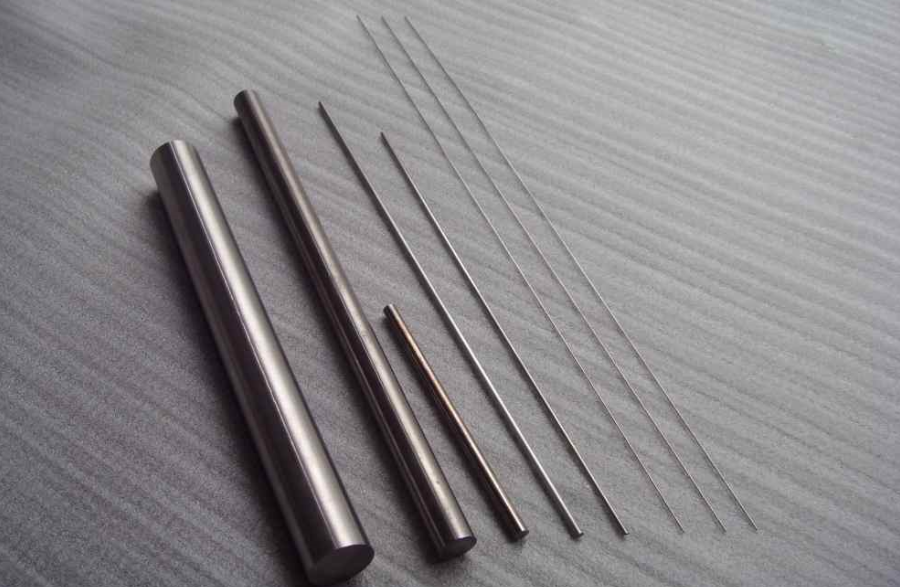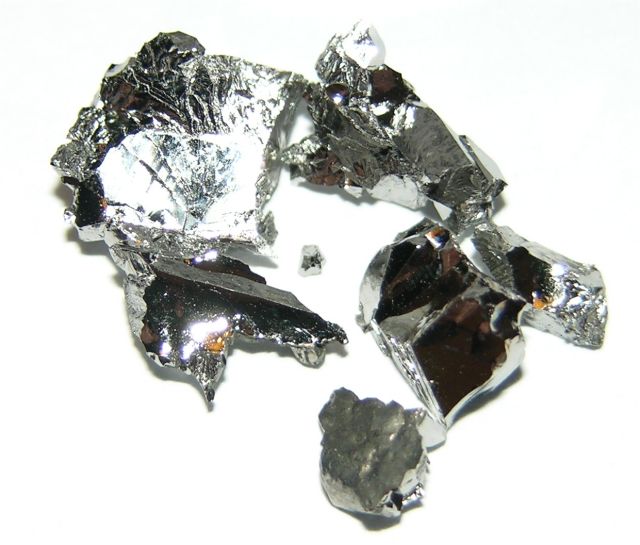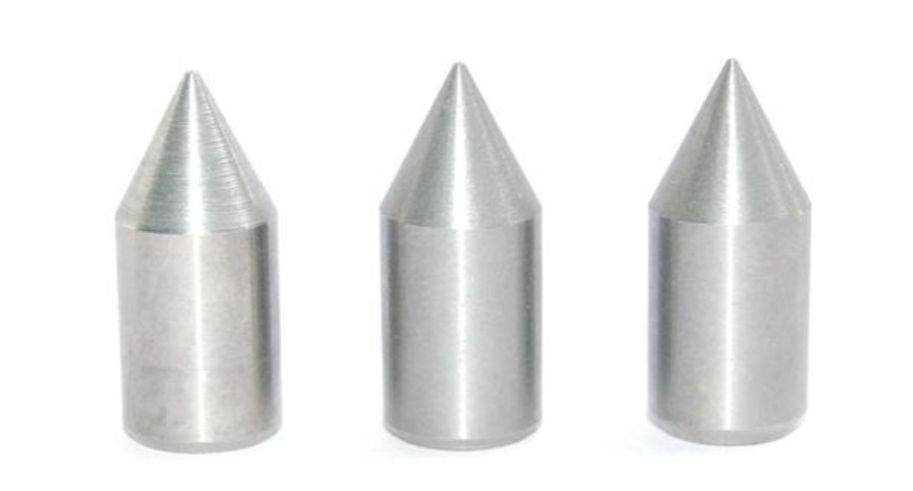
Tungsten, which has an atomic number of 74 in the periodic table, is a VIB group metal. It has a density of 19.35 g/cm3 that is close to gold, with a melting point of 3,422 ℃ and a boiling point of 5,927 ℃. In this article, we’ll take a look at the application of tungsten and tungsten alloys.

Application Of Tungsten And Tungsten Alloys
Tungsten is a silver-white, steel-like metal with the highest melting point of any metal element and a slow rate of evaporation. Tungsten is chemically stable. It does not react with air or water, or with hydrochloric acid, sulfuric acid, nitric acid, or hydrofluoric acid of any concentration at room temperature, but it can be dissolved rapidly in mixed acid of hydrofluoric acid and concentrated nitric acid and does not work in alkali solution.

Tungsten
The content of tungsten in the earth’s crust is 0.001%. There are more than 20 kinds of tungsten minerals and minerals containing tungsten found, but only wolframite and scheelite have economic value in mining. Wolframite accounts for about 30% of the world’s tungsten resources and about 70% of scheelite.
Due to its high melting point, high hardness, high density, good electrical and thermal conductivity, small expansion coefficient, and other characteristics, the application of tungsten and tungsten alloys are usually in the alloy, electronic, chemical, and other fields.
Most tungsten is used in special steels. High-speed steel containing 9% – 24% of tungsten, 3.8% – 4.6% of chromium, 1% – 5% of cobalt vanadium, 4%, 7%, and 0.7% – 1.5% of carbon. High-speed steel is characterized by high hardening tempering temperature in the air (700-800 ℃), it can be automatically quenched, so it remains high hardness and wears resistance until 600-650 ℃.
Tungsten steel in alloy tool steel contains 0.8%-1.2% tungsten. Chrome-tungsten-silicon steel contains 2% to 2.7% tungsten; chromium-tungsten steel contains 2% to 9% tungsten; chromium-tungsten-manganese steel contains between 0.5% and 1.6% tungsten. Tungsten-containing steel is used in the manufacture of tools such as drill bits, milling cutters, drawing dies, male and female dies, gas support tools, etc.
Tungsten, the hardest metal to melt, is the constituent of many hot strong alloys, such as CoCrW, which consists of 3% – 15% tungsten, 25% – 35% chromium, 45% – 65% cobalt, and 0.5% – 0.75% carbon, and it is mainly used for strongly wear-resistant parts, such as valve of aero-engine, working parts of die pressing knife, turbine impeller, digging equipment, surface coating of plowshares.
Tungsten carbide has high hardness, and wear resistance, and is refractory. These alloys contain 85-95% tungsten carbide and 5-14% cobalt, the binder metal that gives the alloys the necessary strength. Tungsten carbides are mainly used in the processing of some alloys of steel, which also contain titanium, tantalum, and niobium carbides.
All these alloys are made by powder metallurgy. When heated to 1000 — 1100℃, they still have high hardness and wear resistance. The cutting speed of carbide cutters far exceeds that of the best tool steel cutters. Hard alloy is mainly used for cutting tools, mining tools, and drawing dies.
Tungsten-copper alloys (10% – 40% copper) and tungsten-silver alloys made by powder metallurgy have good electrical and thermal conductivity of copper and silver and wear resistance of tungsten.
At high temperatures, the copper in the alloy will be liquefied and evaporated at about 3000℃, and a large amount of heat will be taken away, thus reducing the heat of the material, so it is also called spontaneous sweat material.
Therefore, it is a very effective contact material for making working parts such as knife switches, circuit breakers, and spot welding electrodes.
Tungsten heavy alloy with 90% – 95% tungsten, 1% – 6% nickel, 1% – 4% copper, an alloy with iron instead of copper (- 5%), used in the manufacture of gyroscope rotor, aircraft, balance hammer for control rudder, radio-isotope radiation shield and material basket, etc.

Application Of Tungsten And Tungsten Alloys
Doped with oxides such as K, Al, Si, or ThO2 in tungsten alloy, the doped tungsten alloy made by powder metallurgy can produce tungsten wire, tungsten bands, and various forged elements, which can be used in the production of electronic tubes, radio electronics, and X-ray technology.
Tungsten is the best material for white filament and spiral wires. At a very high operating temperature (2200 — 2500℃), the tungsten wire can still ensure high luminous efficiency, and a small evaporation rate to ensure the long life of the wire.
Tungsten wire is also used to manufacture direct hot cathode and grid of the electronic oscillating tube, the cathode of high voltage rectifiers, and side hot cathode heaters of various electronic instruments.
Tungsten is used as the opposite cathode and cathode of the X-ray tube and gas discharge tube, as well as the contact of radio equipment and the electrode of the atomic hydrogen welding gun.
Besides that, tungsten wire and tungsten rod act as a heater for the high-temperature furnace (3000℃), while tungsten heaters work in hydrogen gas, inert gas, or vacuum.
Thank you for reading our article and we hope it can help you to have a better understanding of the application of tungsten and tungsten alloys. If you want to know more about tungsten or other refractory metals, we advise you to visit Advanced Refractory Metals (ARM) for more information.
Headquartered in Lake Forest, California, USA, Advance Refractory Metals (ARM) is a leading manufacturer & supplier of refractory metals across the world, providing customers with high-quality refractory metals such as tungsten, molybdenum, tantalum, rhenium, titanium, and zirconium at a very competitive price. Please visit https://www.refractorymetal.org for more information.
Copyright © 1994-2024 Advanced Refractory Metals owned by Oceania International LLC, All Rights Reserved.